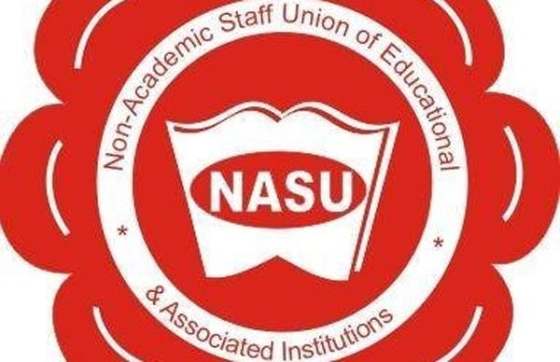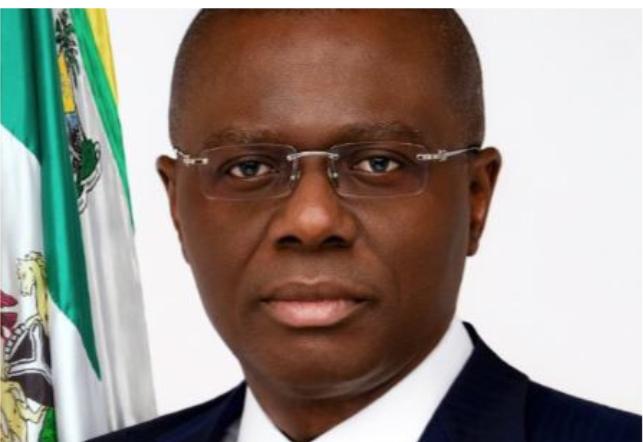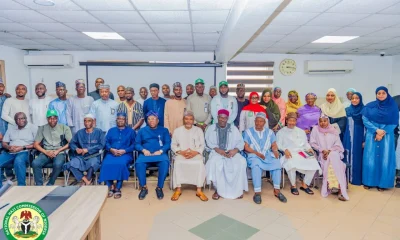Economy
World Bank: FG, States Won’t Be Able to Pay Salaries in 2022 If Fuel Subsidy is Retained

The World Bank yesterday sounded the alarm bells to Nigeria, saying further delay in removing the fuel subsidy which had been described as a major drain and waste on the economy could see the federal and state governments unable to pay salaries from 2022.
The Lead Economist, Nigeria Country office of the World Bank, Marco Antonio Hernandez, painted a gloomy picture of Nigeria if the country decides to continue with the controversial fuel subsidy, while unveiling the Nigeria Development Update (NDU), a bi-annual report of the multilateral institution, at an even that held in Abuja as well as virtual.
Also, the Group Managing Director of the Nigerian National Petroleum Corporation (NNPC), Mallam Mele Kyari, during a panel session at the event, lamented the huge burden the continuous retention of the subsidy on petrol had been to the corporation, warning that going forward, “the NNPC may have to start invoicing the federation to be able to maintain subsidy.
”This is just as the Minister of Finance, Budget and National Planning, Mrs. Zainab Ahmed, reiterated that the government was working on introducing measures that would cushion the impact of fuel subsidy removal on vulnerable Nigerians.
Speaking further, Hernandez, in the report, urged Nigeria to remove subsidy on petroleum motor spirit (PMS) in February 2022, as prescribed by the Petroleum Industry Act (PIA), warning that further delay could worsen the precarious revenue situation confronting the country.
The report also warned that the present fiscal condition of the sub-national governments would take a turn for the worse in 2022 with 35 of the 36 states unable to meet their financial obligations.
Hernandez stated that a situation where N250 billion goes into fuel subsidy monthly was unsustainable as the paucity of revenue confronts the country, especially the sub-national governments.
Hernandez who provided insights into the NDU report, titled “Time for Business Unusual,” stated that should the current revenue challenge continue till 2022, only Lagos State would be able to meet its financial obligations.
The report pointed to mounting fiscal pressures due to lower-than-expected revenues in 2021 and the rising cost of PMS subsidy.
It stated: “Because most states rely heavily on inter-governmental transfers, diminished revenue inflows to the Federation Account are jeopardising fiscal sustainability at the state level.
“For example, in the oil-producing State of Bayelsa federal transfers account for 91 per cent of revenues, and declining transfers caused a 22-percent drop in Bayelsa’s revenues per capita during the year.
“Even in the state of Lagos, which relies the least on Federal transfers, transfers accounted for 29 per cent of revenues in 2020. Most State expenditures cover salaries and administrative expenses, and given their rigid (i.e., nondiscretionary) nature, State-level expenditures are difficult to cut.
“Consequently, lower revenues are likely to intensify pressure on states’ debt stocks and undermine their fiscal sustainability.”
According to the report, in contrast to past periods of high oil prices, the Nigerian government has this time not been able to fully benefit from the oil boom because oil production has fallen below Nigeria’s estimated capacity and the Organisation of Petroleum Countries (OPEC) quota due in part to rising insecurity and the higher cost of the PMS subsidy.
It stated: “In 2022 the federal government plans to spend about 3,000 naira (US$7) per person for health, while the cost of the PMS subsidy for next year could reach 13,000 naira (US$32) per person. Not only is the PMS subsidy costly, but it mainly benefits richer households.
“Nigeria has the opportunity to establish a “compact” with citizens that eliminates the subsidy and uses the savings to provide targeted cash transfers to lower-income-households, invest in job-creating programs, and improve its fiscal position.”
It stated that the insufficient supply of foreign exchange (FX) issues related to the predictability of exchange rate management, the unsustainable subsidy on premium motor spirit (PMS), burdensome trade restrictions, and the sizeable fiscal deficit financing by the Central Bank of Nigeria (CBN) are undermining the business environment, compounding underlying constraints on domestic revenue mobilisation, foreign investment, human capital development, and the delivery of public services.
The report noted that despite a strong initial recovery and resurgent global oil prices, Nigeria’s pre-crisis challenges were threatening its post-crisis recovery, highlighting the need to depart from business-as-usual policies.
“Even though Nigeria’s economy exited a pandemic-induced recession, several challenges persist including double-digit inflation, declining incomes, and rising insecurity.
“While the government took bold policy measures to mitigate the impacts of the COVID-19 crisis, the reform momentum has slowed which hinders Nigeria’s ability to reach its growth potential,” World Bank Country Director for Nigeria, Shubham Chaudhuri said.
The report prescribed policy options for Nigeria, including addressing fiscal pressures.
“Urgent priorities for the next three to six months include reducing inflation, improving exchange-rate management, mobilising additional oil and nonoil revenues, eliminating the PMS subsidy and redirecting expenditures towards targeted cash transfers and other priority investments, fostering competitive markets, and improving infrastructure.
“While Nigeria’s macroeconomic projections have been updated since the previous edition of the NDU, the government’s fundamental policy challenges remain unchanged,” it added.
In his contribution, Kyari, pointed out that while all over the world, subsidies are introduced to bring cost control and less pains to citizens, in Nigeria, fuel subsidy has become a major fiscal burden that must be eliminated.
The NNPC boss explained: “Today, we are evacuating about 60 million litres of gasoline from all the depots in the country. It is not national consumption and it is very understandable because of issues such as cross-border smuggling.
“As long as you have arbitrage, traders don’t see it as a crime, they just take advantage of that and exploit it. What we are dealing with is about N243 billion of fuel subsidy monthly. So, there is no magic around that.
“This is the reality that we are facing. Going forward in 2022, we simply cannot afford this, we just don’t have the resources. As a matter of fact, the NNPC may have to start invoicing the federation to be able to maintain subsidy.
“When you take out N243 billion from your total income every month, you are not able to fund your operations and so you can’t meet your other fiscal obligations. Clearly, there is a challenge in the ability to pay. So, there is a reform going on, particular in the energy sector and no one can stop.”
Also, the Governor of Kaduna State, Mallam Nasir El-Rufai wondered why the country would continue to allocate more monies to fuel subsidy compared with the allocations to education, roads and the health sectors.
“Is subsidising petrol more important than our health as even in a year we spent significant amount on health due to the pandemic, the budget for subsidy was still higher? Does it make sense?
“Is subsidising petrol about thrice as educating our children and preparing them for the future more important? The capital budget for roads is five times less than our budget for subsidy. We have to ask ourselves as Nigerians whether this makes sense at all,” he added.
According to El-Rufai, “this is the first time in Nigeria that oil prices are rising globally, yet, there is no windfall. In fact, we are getting less. Why? Because according to Kyari, subsidy is taking N250 billion per month.”
He disclosed that this month, what the NNPC paid to the federation account, as part of its contribution to the amount to be shared by the Federation Account Allocation Committee (FAAC), was only N14 billion as against the N120 billion stipulated in the budget, and, “with the threat that next month they would ask the federation account to give them a cheque to cover subsidy.”
“So, we have to ask ourselves if this subsidy still makes sense. Who is benefiting from it other than the smugglers and neighbouring African countries and some rich people? We have to stop this thing that will bring Nigeria to its knees,” the state governor added.
Earlier, in her opening remarks, Ahmed expressed optimism that recent developments in the oil sector, such as the Petroleum PIA 2021, the full reactivation of the four public refineries in the country, and the completion and coming on stream of the three private refineries under construction in 2022, would significantly boost contribution from the sector to economic growth.
According to her, subsidies’ regime in the sector remained unsustainable and economically disingenuous.
She disclosed that ahead of the target date of mid-2022 for the complete elimination of fuel subsidies, the government was working with its partners on measures to cushion potential negative impact of the removal of the subsidies on the most vulnerable at the bottom, which she estimated to be 40 per cent of the population.
“One of such measures would be to institute a monthly transport subsidy in the form of cash transfer of N5,000 to between 30 – 40 million deserving Nigerians.
“As a government, we remain committed to our broad objectives of stimulating broad-based growth through diversification and the active participation of the private sector to ensure that our growth is inclusive.
“We will continue to prioritise investment in critical infrastructure needed to unlock production and supply constraints, to create adequate productive employment and preserve jobs, and to ensure macroeconomic stability and promote poverty reduction and equity.
“I agree with the Report that with the expansion of social protection policies during the pandemic, the government has an opportunity to phase out subsidies such as the PMS subsidy while utilising cash transfers to safeguard the welfare of poor and middle-class households.
“Towards this end, we intend to accelerate our structural reforms, particularly in the power sector, in governance, in business environment to unlock the huge potentials of the economy, scale up social safety net and deepen financial inclusion to reduce poverty and inequality gaps. We will carefully calibrate the sequencing of these reforms to manage their attendant political fallouts,” she added.
Ahmed pointed out that digital revolution was looming in Nigeria and waiting to happen spontaneously.
“I agree that Nigeria’s digital economy can transform economic activities by unleashing new productivity gains, offering new services, and improving the government’s efficiency. We see enormous opportunity for our theming youth population in this sector which has largely remained unharnessed with isolated progress and possibilities.
“We need greater investments in newer and competitive technologies to be made for the provision of critical infrastructure in the telecoms sector to unleash potentials.
“To protect such investments, government has been mobilising national security outfits, and even local ‘vigilantes’ to provide added layers of security for the infrastructure, while at same time engaging local communities towards addressing the likely root causes of cases of infrastructure vandalisation,” she added.
Economy
Access Holdings Awards Shares Worth N427.13m to 8 Senior Executives
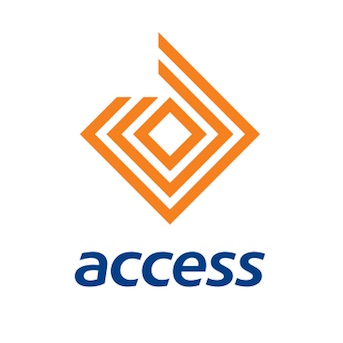
Access Holdings Plc has awarded 23.8 million ordinary shares worth N427.13 million to its senior executives and those of its subsidiary, Access Bank.
This was disclosed in a notice sent to the Nigerian Exchange Ltd.(NGX) in Lagos.
The notification was sent in line with the disclosure requirements of the Securities and Exchange Commission (SEC) and the NGX.
It is also in pursuant of the terms of its shareholders’ approved Employees Performance Share Plan.
The group said that Ms Bolaji Agbede, Acting Group Chief Executive Officer, Access Holdings, Mr Roosevelt Ogbonna, Managing Director/CEO, Access Bank, and six others were vested with 23,883,790 shares worth N427.
13 million in total.According to the filings, Ogbonna got the highest amount of shares, totalling 12,345,679 and valued at N220.37 million, having been traded at N17.85 per share.
Agbede was vested with 2,216,992 shares, valued at N39.795 million.
Other directors who had shares vested on them include: Mr Seyi Kumapayi, Executive Director, African Subsidiaries, Access Bank, with 1,234,568 shares worth N22.16 million.
Ms Iyabo Soji-Okusanya, Executive Director, Commercial and Investment Banking Division, Access Bank, got 1,691,308 shares at N17.95 per share, valued at N30.36 million.
Mrs Chizoma Okoli, Access Bank’s Deputy Managing Director, Retail South, also got 1,728,395 shares valued at N30.85 million.
Dr Gregory Jobome, Executive Director, Risk Management, and Hadiza Ambursa, Executive Director, Commercial Banking, were vested with 1,728,395 shares each,valued at N30.85 million and N31.02 million respectively.
Also, Access Holdings’ Company Secretary, Mr Sunday Ekwochi, was vested with 1,210,058 shares worth N21.72 milion.
The group stated that the shares were vested on May 3 and May 6.
It noted that the vesting of the shares was not a purchase or sale transaction in the context of the Exchange’s rules.(NAN)
Economy
CBN’s Cybersecurity Levy Ill-timed, Negates Financial Inclusion – Expert
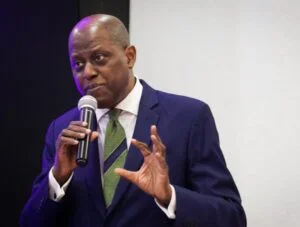
CBN Governor, Yemi Cardoso A financial expert, Prof. Uche Uwaleke says the newly introduced 0.5 per cent charges on electronic transactions as cybersecurity levy by the Central Bank of Nigeria (CBN) is ill-timed.
Uwaleke, a professor of capital market and the president of the Capital Market Academics of Nigeria, said this in an interview on Tuesday in Abuja.
According to him, the cybersecurity levy is ill-timed, coming at a time when the CBN is concerned about the high rate of financial exclusion and the increasing rate of currency circulating outside the banks.
He said that it carried the downside risk of discouraging financial intermediation as well as complicating the transmission of monetary policy with more people shunning the banks due to high charges.
“The end result is that it makes difficult effort by the CBN to tame inflation.
“So, I think the circular should be withdrawn, especially against the backdrop of assurances by the government that its plan to increase revenue would not include introducing new taxes or increasing tax rates.
“To this end, the government should suspend the policy while getting set to implement the recommendations of the Presidential Committee on Fiscal Policy and Tax Reforms,” he said.
He said that the mandate of the committee included streamlining multiple taxes and levies currently inhibiting the growth of businesses in Nigeria.
NAN reports that the CBN had on Monday directed all banks to commence charging a 0.5 per cent cybersecurity levy on all electronic transactions within the country.
The direcve was contained in a circular jointly signed by the Director, Payments System Management Department, Chibuzo Efobi; and the Director, Financial Policy and Regulation Department, Haruna Mustafa.
The circular was directed to all commercial banks, merchant banks, non-interest banks, and payment service banks.
It announced that the implementation of the levy would start two weeks from May 6.
“The levy shall be applied at the point of electronic transfer origination, then deducted and remitted by the financial institution.
“The deducted amount shall be reflected in the customer’s account with the narration, ‘Cybersecurity Levy,’” the circular said.
However, some 16 banking transactions were exempted from the new cybersecurity levy.
They include loan disbursements and repayments, salary payments, intra-account transfers within the same bank or between different banks for the same customer, intra-bank transfers between customers of the same bank among others.
By the calculations of the new levy, five Naira will be charged on a transaction of N1,000, while N50 will be charged on a transaction of N10,000.
Others are N500 charge on a transaction of N100,000, N5,000 charge on a transaction of N1,000,000, and N50,000 charge on a transaction of N10,000,000.
The cybersecurity levy will now be added to already existing bank charges like transfer fee, stamp duty, charges on SMS, and Vat .(NAN)
Economy
Trading on NGX Increases by 28%, Investors Gain N467bn

The Nigerian Exchange Ltd. (NGX) on Friday recorded 28.14 per cent increase in the value of equity transactions, resulting in investors gaining N467 billion.
Specifically, 446.57 million shares valued at N7.10 billion were exchanged in 9,297 deals, in contrast to 665.20 million shares valued at N5.
54 billion in 8,446 deals on Thursday.Consequently, the market capitalisation, which opened at N55.
856 trillion, gained 0. 83 per cent or N467 billion to close at N56.323 trillion.The All-Share Index also added 0.83 per cent or 825 points to close at 99,587.25, as against 98,762.78 recorded in the previous session.
As a result, the Year-To-Date (YTD) return rose to 33.
18 per cent.Renewed interest in MTN Nigeria, alongside Tier-one banks, Presco Plc, UACN, United Capital, among other leading stocks, sustained the market’s positive trend.
Also, market breadth closed positive with 27 advanced equities outnumbering 20 declined ones.
On the gainers’ chart, Presco led by N22.90 to close at N252.80, Dangote Sugar followed closely by N4.25 to close at N47, while Ellah Lakes Plc gained 30k to close at N3.32 per share.
Jaiz Bank also advanced by 21k to close at N2.35 and Flour Mill rose by N3.25 to close at N36.80 per share.
Conversely, Conoil and Tantalizers led the losers chart by N10.80 and 4k each to close at N97.20 and 36k per share, respectively.
McNichols Plc lost 12k to close at N1.14, Linkage Assurance trailed by 9k to close at 86k and Guinea Insurance shed 3k to close at 30k per share.
Meanwhile, Access Corporation led the activity chart in volume and value with 151.80 million shares worth N2.68 billion, followed by Veritas Kapital with 49.88 million valued at N30.91 million.
United Bank of Africa(UBA) traded 32.89 million worth N845.74 million, Universal Insurance sold 27.14 million shares valued at N9.76 million and Transnational Corporation transacted 21.82 million share worth N310.32 million. (NAN)



